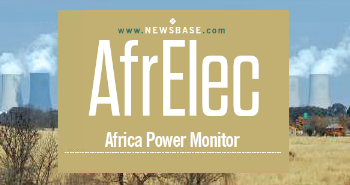Russia's Rosatom to begin construction on El Dabaa NPP’s Unit 3 in Egypt

Russian state-run nuclear corporation Rosatom started laying the first concrete into the foundation of the El Dabaa nuclear power plant’s (NPP) third unit in Egypt on May 3, reports Tass.
The move comes after Egypt's parliament – the House of Representatives – this week finally approved government-drafted amendments to the 1976 law regulating the performance of the Nuclear Power Plants Authority (NPPA).
"The legislation would give tax breaks to Egyptian and foreign contractors alike," said NPPA chairman Amgad El-Wakeel, as quoted by Ahram Online, who last month indicated that Egypt and Russia would speed up the construction of the 4.8-GW NPP at El Dabaa, located 135 kilometres west of Alexandria.
The plant’s first two units began construction in 2022, with Rosatom confirming that the work is progressing as planned. The El Dabaa NPP, located in the Governorate of Matrouh on the Mediterranean Sea coastline, will be the first NPP in Egypt and Rosatom’s first significant project in Africa.
The El Dabaa NPP will consist of four units using Russia’s VVER technology, each with a capacity of 1,200 MW and equipped with a Generation III+ VVER-1200 reactor, the most advanced technology currently available. The VVER technology has already been successfully implemented and operated in Russia and other countries, according to Rosatom. Egypt expects the NPP to operate at full capacity by 2030.
Rosatom provided documents for the construction of the NPP’s four units to the Egyptian Nuclear and Radiological Regulatory Authority (ENRRA) in 2021, and construction could only commence after obtaining ENRAA permission. The permission for the construction of Unit 3 was granted on March 29, 2023.
Russia and Egypt signed an intergovernmental agreement on the construction of Egypt’s first NPP in November 2015, with the package of contracts coming into force on December 11, 2017.
In line with the agreement, Russia will build the NPP, provide nuclear fuel for the full cycle of its operations and assist Egyptian partners in training and maintaining the facility during the first ten years of its operation. Russia will also construct a storage facility for spent nuclear fuel and provide the Egyptian side with storage containers for fissile materials.
The total cost of construction for the El Dabaa NPP is $30bn, with Egypt covering 15% of the expenses by attracting private investors. In addition, Egypt will receive a state export loan of $25bn to cover 85% of the construction works, with payments scheduled to begin in October 2029.
Russia currently has some of the most advanced NPP technology in the world and nuclear power exports are booming. Russia's nuclear exports were already expanding well before the war in Ukraine started but now they are growing even faster.
Since the Chernobyl disaster in 1986, Russia has fully modernised its nuclear technology and switched to the VVER 1200 reactors (water-water energetic reactor) that are compliant with the IAEA’s International Nuclear Safety Group (INSAG) recommendations and in general are considered to be amongst the safest in the world.



Follow us online